5 War Stories That Deserve a Closer Look
Photos that let history speak for itself...
In his magnum opus, Nineteen Eighty-Four, George Orwell wrote:
Who controls the past controls the future: who controls the present controls the past.
In times like these, it’s more important than ever to look back and rediscover the moments we’ve forgotten. That’s how life works: our minds must make room for new information, often pushing aside details that may seem trivial but are, in fact, deeply significant.
We are trained to look for grandeur — flags raised, treaties signed, tyrants toppled — but history’s true pulse is quieter. It’s in the faces of those who stood just outside the margins of our textbooks. In a moment of peace no one remembers. In the shadow of a war everyone forgot until it returned in a new uniform…
Reminder: This is an entirely reader-supported publication.
Upgrade your subscription for just a few dollars a month to help our mission and access members-only articles 👇🏻
To document history is to preserve the fragile memory of what mattered then, even if it feels small now. We say, “If we do not learn from history, we are doomed to repeat it,” and that’s not because we lack facts, but because we forget the feelings. The smells. The silences. The questions left unanswered…
We mistake the ordinary for the unimportant, and in doing so, we lose sight of the delicate thread that connects our present to those overlooked yesterdays.
In For Whom the Bell Tolls, Hemingway writes:
Today is only one day in all the days that will ever be. But what will happen in all the other days that ever come can depend on what you do today. It's been that way all this year. It's been that way so many times. All of war is that way.
These words remind us that even the most fleeting seconds carry weight… especially with a conflict looming on the horizon.
The war we refuse to remember often becomes the one we are forced to relive.
And as we stand on the precipice of uncertain times, the need to keep alive — even the smallest stories — becomes ever more essential.
These photographs, these five unsung moments, offer us a chance to look into the complexities of our shared past. Because to remember is not simply to recall events but to carry their meaning deep within us. Only then can we be prepared for what lies ahead...
1. A Father Looking for His Sons That Went Missing During the Kosovo War
Mustafa Xaja, a Kosovar Albanian from the town of Mitrovica, shows photos of his two sons — whom he feared had been killed by Serbs. The anguish and sorrow in his eyes are among the most profound I have ever seen, utterly beyond words…
Recently released from a Serbian prison, Mustafa was forced to cross the border into Albania. It was only later that he discovered his family was alive and safe.
2. A Mother and Her 8 Sons: They All Served in WWII and Returned Home
Nothing can truly capture the emotions a mother must feel when all her sons come back unharmed from the battlefield…
The photo shows a proud mother, Nettie Rhea Brady Adams, alongside her eight sons: from left to right, in order of age, they are Willis, Doug, Shelby, Perry, Morris, Rulon, Kay DeVon, and Que.
This reminded me of a passage from A Clash of Kings by George R. R. Martin:
Children are a battle of a different sort... As hard as birth can be, what comes after is even harder.
3. The Christmas Truce
The Christmas Truce of 1914 was a fleeting moment of humanity in the horror of World War I. Just five months into the bloodshed, exhausted and disillusioned soldiers laid down their weapons. Along the Western Front, British, German, and French troops emerged from the trenches to shake hands, share food, sing carols, and bury the dead together.
In a war defined by mud, misery, and mass death, this spontaneous ceasefire offered a brief glimpse of peace. It was men, not generals, who chose to stop the slaughter.
Though commanders cracked down in later years and the war only grew darker, the 1914 truce is still a powerful symbol: even in the midst of madness, the human spirit can prevail.
4. A Serbian Soldier Sleeps With His Father Who Came to Visit Him on the Front Line
To quote Hemingway again from For Whom the Bell Tolls:
Never think that war, no matter how necessary nor how justified, is not a crime. Ask the infantry and ask the dead.
5. A Soldier's Face After Four Years of War
Artist Eugen Stepanovich Kobytev on the day he went to the front in 1941 and in 1945 when he returned. These images reveal the profound human cost of four brutal years of war.
Kobytev was a teacher and artist from Altai who graduated from art school in Kyiv in 1941 and immediately joined the Red Army. A few months later, he was captured and sent to the “Khorol pit,” an infamous prison camp in central Ukraine. After escaping from the camp in 1943, Kobytev rejoined the Red Army for the remainder of WWII.
They say a picture is worth a thousand words... and that’s certainly true here. These two photographs show the invisible wounds war inflicts on the human spirit.
I believe the only appropriate way to end this piece is with the words of United States Marine Corps Major General and two-time Medal of Honor recipient Smedley Butler:
War is a racket. It always has been. It is possibly the oldest, easily the most profitable, surely the most vicious. It is the only one international in scope. It is the only one in which the profits are reckoned in dollars and the losses in lives. A racket is best described, I believe, as something that is not what it seems to the majority of the people. Only a small "inside" group knows what it is about. It is conducted for the benefit of the very few, at the expense of the very many.
Thanks for reading! A quick reminder: this newsletter runs entirely on reader support. If you enjoy the content, please consider upgrading your subscription. Your support makes a huge difference — and as a bonus, you'll get access to exclusive articles and the full archive. Thank you!



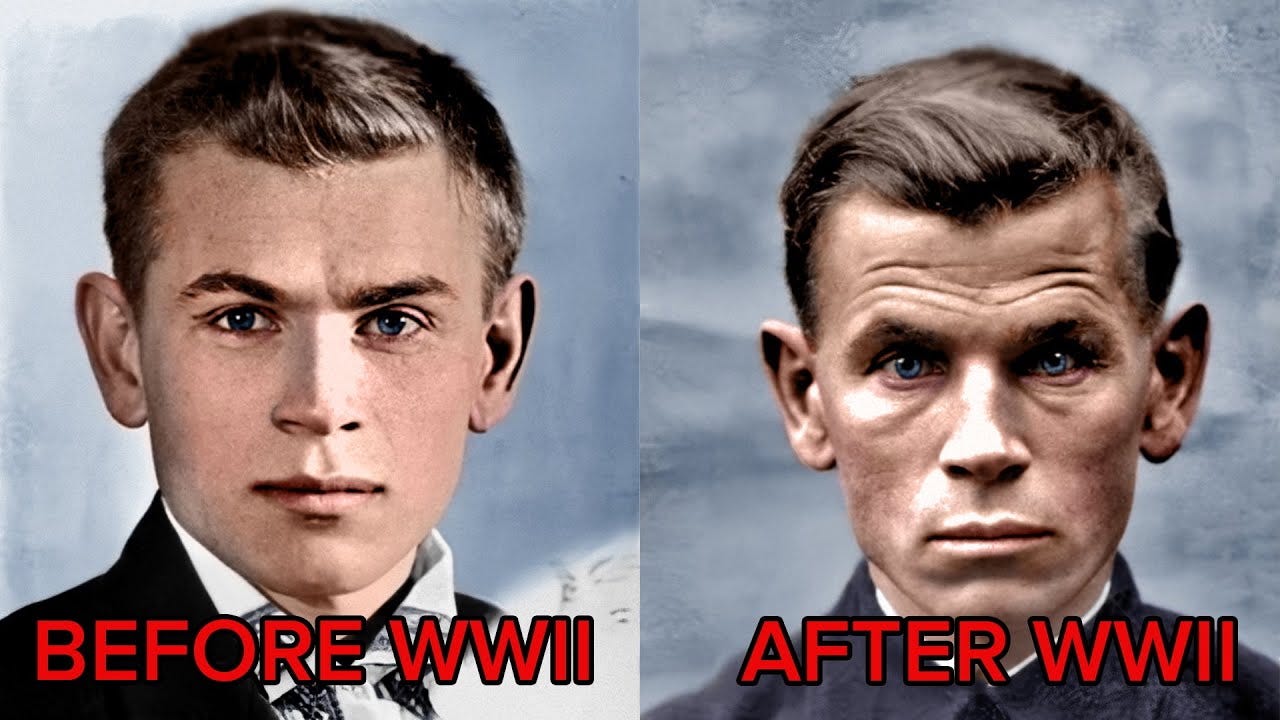
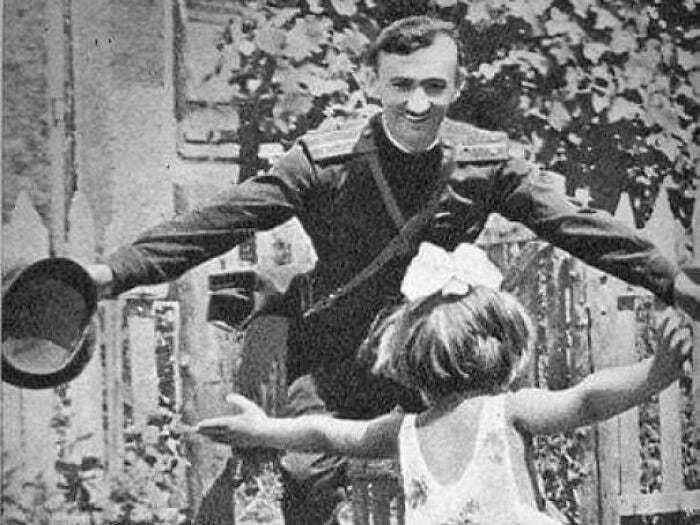
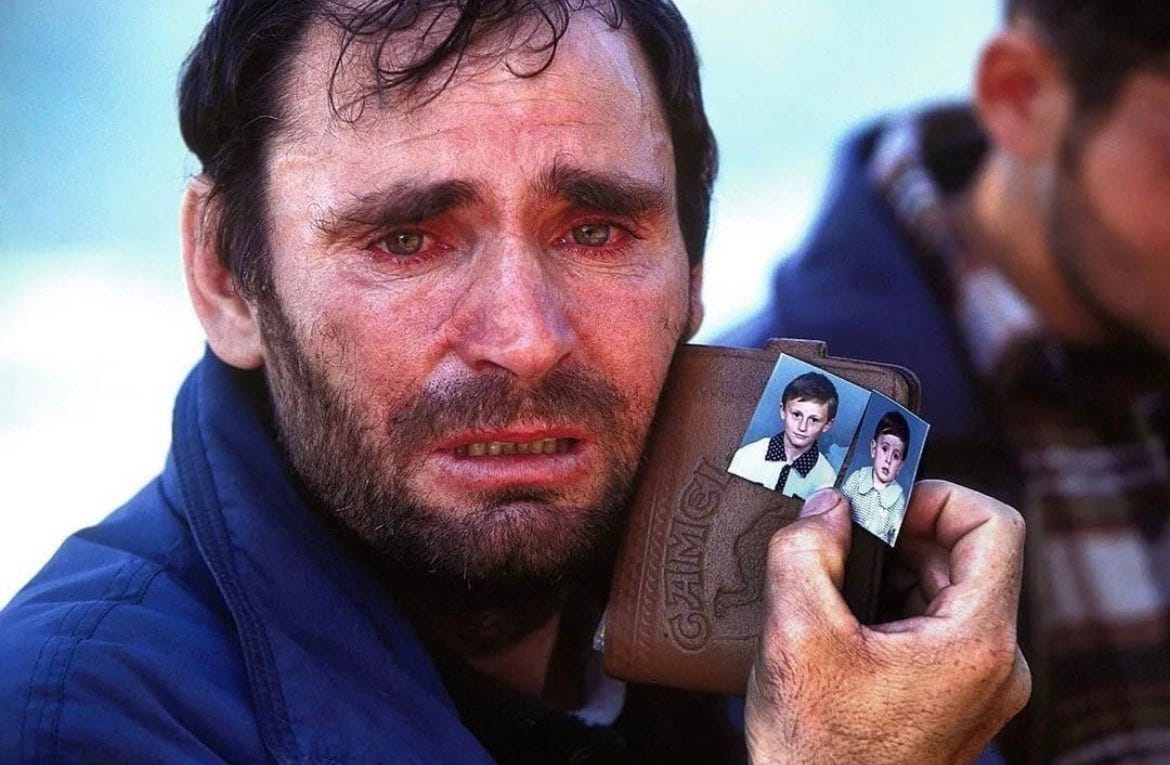
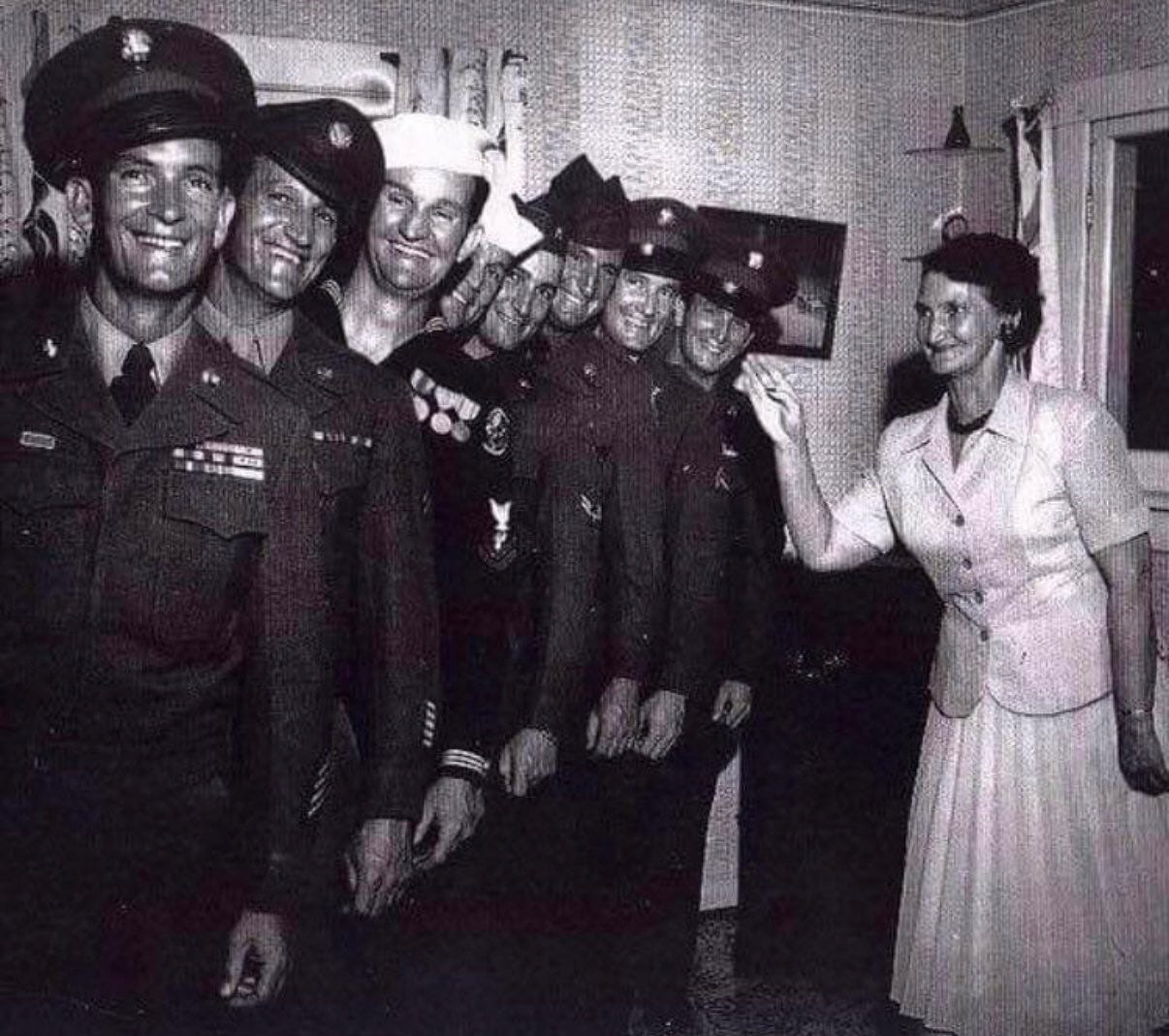
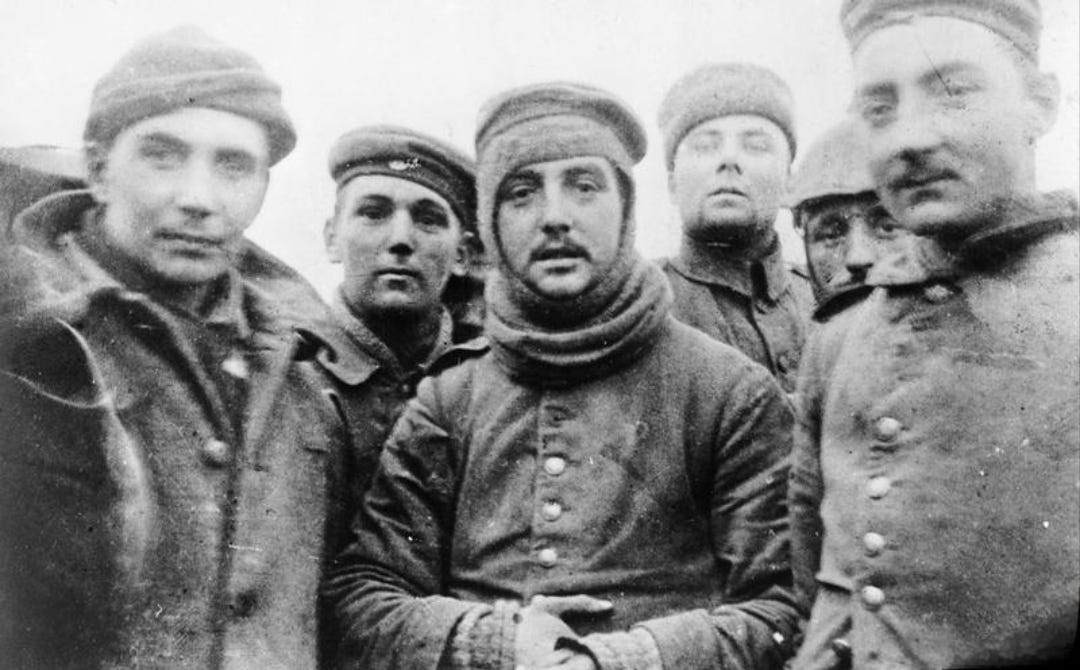
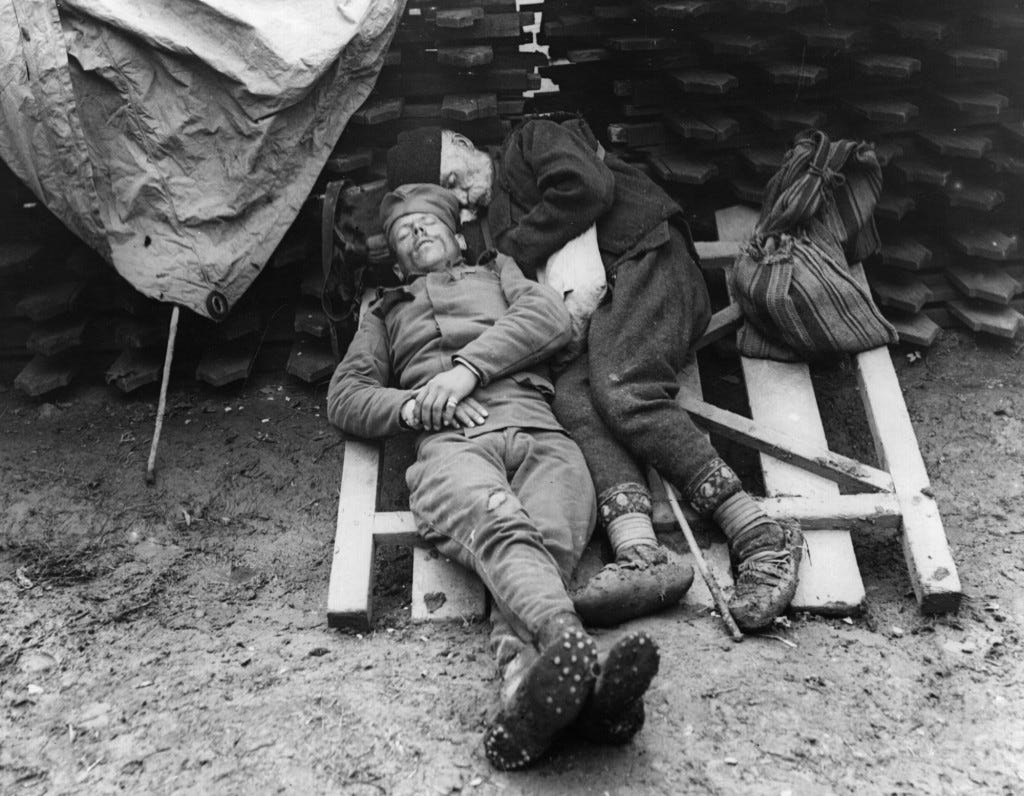
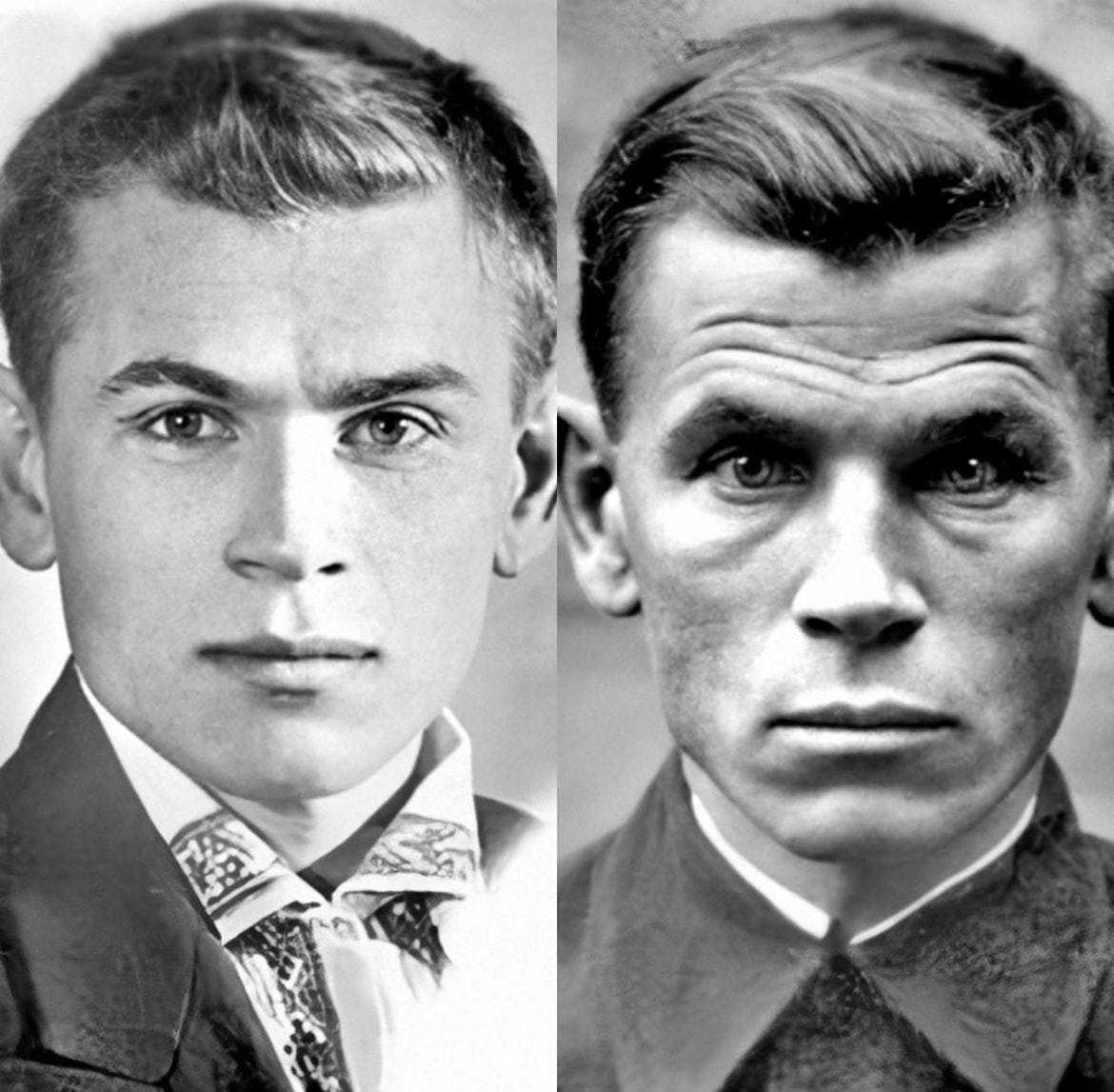
This post by James Lucas sums up a truth I have understood about war since forever. It makes me so very sad that so few people seem able to see the big picture, and the way WAR has always been a game played by wealthy MEN with no regard for the rest of us. Everyone who is not like them is expendable. The photo of the man before and after WWII is particularly profound. My step-dad was a WWII vet--decorated multiple times. He didn't talk about it, but that war changed everyone.
Thank you. 🙏